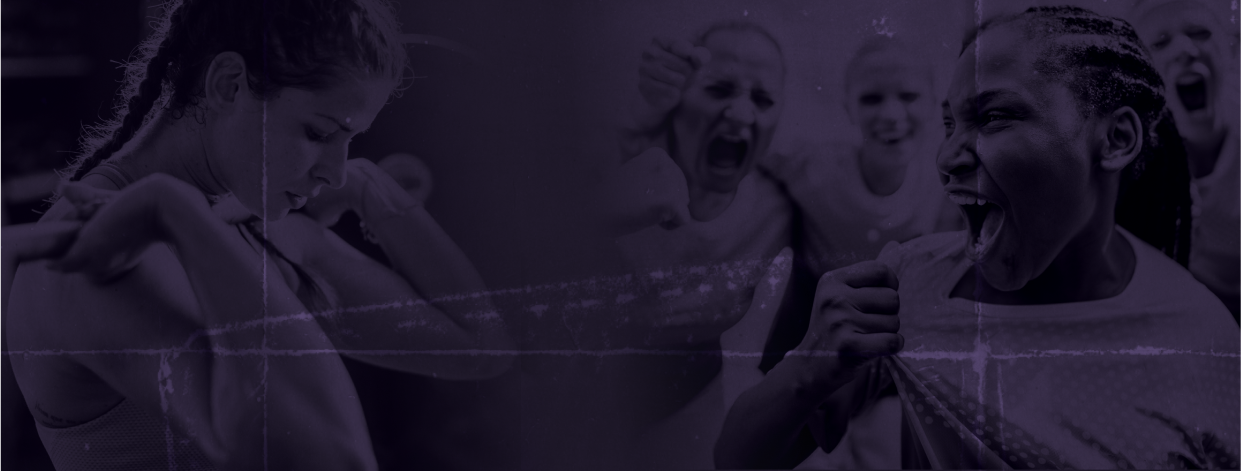McKenna Dressel, a middle blocker for the University of Nevada, Reno (UNR) women’s volleyball team, never planned on speaking out in defense of women’s sports.
“I am a very introverted person,” Dressel told IW Features. “I am not one to really speak up.”
But last year, when her team was scheduled to play against a trans-identified male on San José State University’s (SJSU) women’s volleyball team, McKenna realized she couldn’t sit back and stay silent. She joined her teammates in forfeiting the match against SJSU despite immense pressure from UNR administration officials to play against the male athlete.
“I’m now not afraid to say what I need to say, and I stand up for myself and what I think is right,” Dressel said.
Dressel said her teammates were not briefed by her school’s administration or by the National Collegiate Athletic Association (NCAA), which governs the athletic programs at more than 1,000 schools across the country, that they would be facing a trans-identified male player. In fact, Dressel’s team only found out about the male player because of social media, she said.
Although Dressel said she firmly believes in and respects a person’s right to be “who they want to be,” that right shouldn’t come at the expense of her teammates’ right to physical safety and fair competition.
“Women have fought so hard to earn a place in this world, a man-driven world, and it felt like it was also kind of being taken away from us,” she said.
The idea of being forced to play against a male wasn’t just disheartening — it was also nerve-wracking, Dressell said. There are vast differences between male and female volleyball teams for a reason. Women’s volleyball, for example, consists of much longer rallies, she said, whereas men’s volleyball rallies typically end quicker due to the hard-hitting nature of men’s shots.
“It’s a different sport completely just because of the physicality,” Dressel said.
This reality raised red flags amongst her teammates.
“Safety definitely came into the conversation,” Dressel said. “Everyone was thinking about, ‘Well, these girls are getting injured or hit in the head [by the male player] on [his] swings.”
After deliberation, Dressel and her team, led by her team captain and Independent Women Ambassador Sia Liilii, decided to forfeit the match rather than put themselves at risk, becoming the fifth team in San José State’s University’s competition schedule to do so.
Dressel credits the University of Nevada, Reno’s unique community and environment for giving her the courage to take this stand, even though it meant potentially sacrificing her team’s standing in its division.
At their home games, “we would have kids coming up to us asking for autographs and asking for pictures,” Dressel said. “I was just like, ‘Wow, I can really pave the way for how these kids see the sport.’”
It was moments like these that made Dressel realize her team’s decision was much bigger than just one game — it was about guaranteeing the future of women’s sports.
Dressel recalled one young girl in particular, who sat with her family at every home game. She had just had spinal surgery and was in recovery, but told Dressel she wanted to play volleyball someday just like her.
Dressel gave the girl her jersey to wear to physical therapy as a reminder for strength and motivation, and she thought of her during the many difficult conversations that took place before the forfeited match against SJSU.
“Having to look at those girls and see their faces and how much they love the sport and how much they love us … we had to do it,” Dressel said.
Dressel’s experience coaching a volleyball program for 14-year-old girls also motivated her.
“Thinking about having to look them in the eye and just say, ‘I’m sorry, you might not make it because a biological male could take your spot and you have no control over that’ — it was heartbreaking,” Dressel said.
When asked why she thinks other female athletes haven’t spoken out, Dressel acknowledged it can be difficult to put one’s opinion out there, especially when it could attract criticism.
“No one wants to ever say anything until it happens to them, which is very unfortunate,” Dressel said, admitting that she once felt the same way. “I was aware of the situation, but I never really grasped the magnitude of what was ever going on until it was happening to me.”
But Dressel said female athletes should realize that there is far more public support for keeping women’s sports female than there is opposition.
Following her team’s public forfeit, for example, Dressel said strangers would come up to her and her teammates in the airport while they were traveling for games and thank them for their decision.
“They were like, ‘We are so proud of you guys,’ and ‘Thank you for standing up for my daughter,’” Dressel said. “It gave us even more of something to be proud of. This is why we did this. So everybody else could feel like their voice was heard.”
Dressel said she hopes the NCAA will finally start listening and stand up for women’s sports by repealing its policies allowing male athletes to compete in women’s sports. A return to a sex-based participation policy would “mean the world,” she added, and show that the NCAA values women’s rights to fair play and safety.
“Let’s keep moving forward. Let’s keep empowering women,” Dressel said. “This is everything that we have worked so hard for.”










